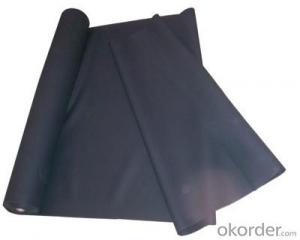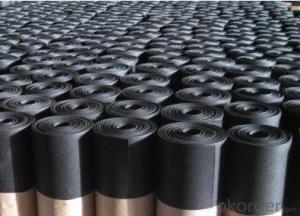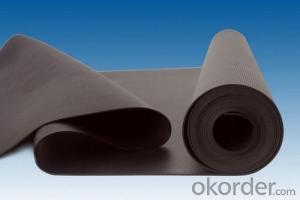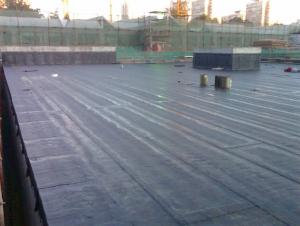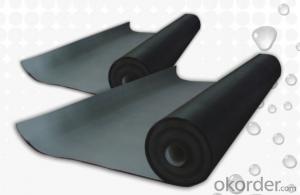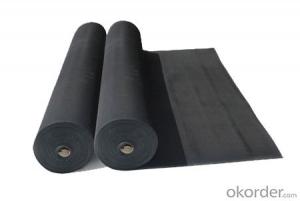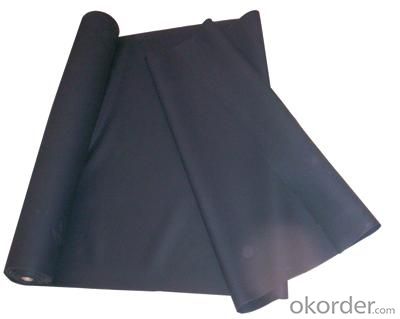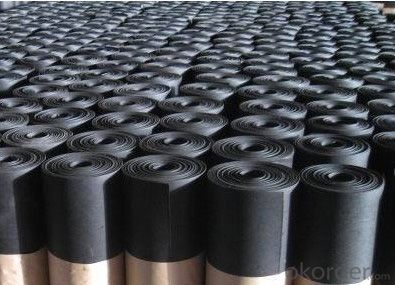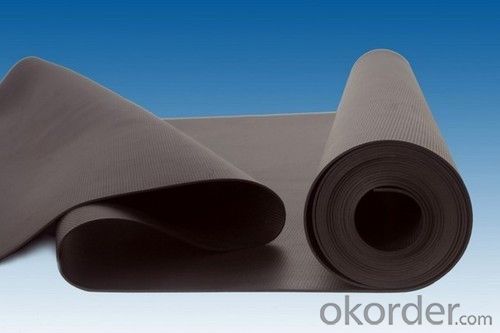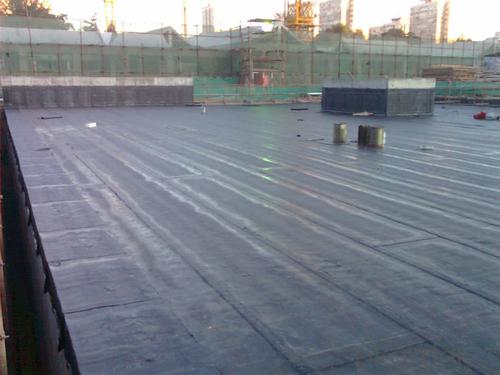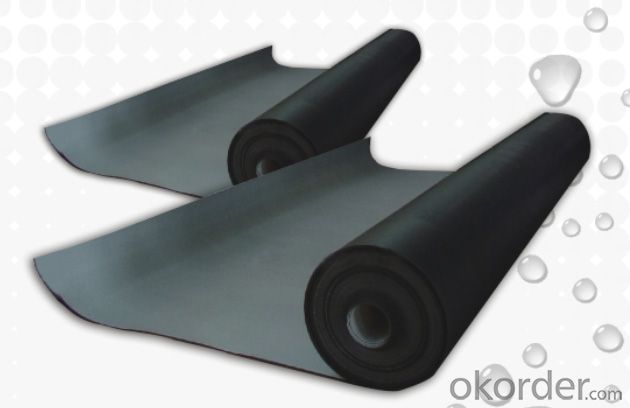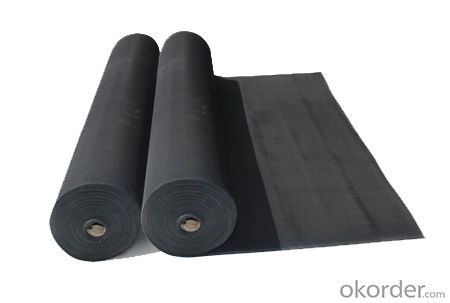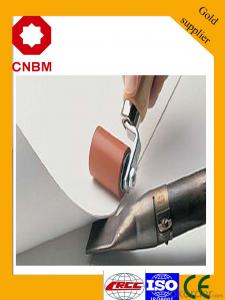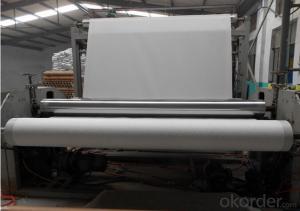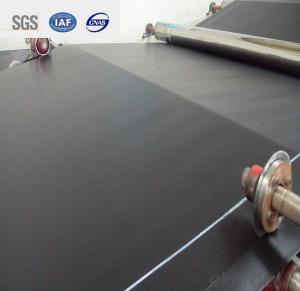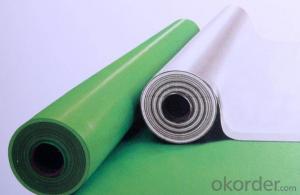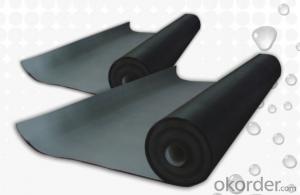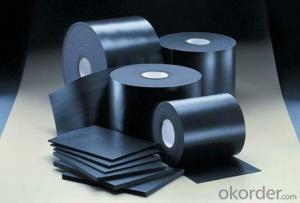EPDM Coiled Rubber Waterproof Membrane with 1.2mm Thickness
- Loading Port:
- Shanghai
- Payment Terms:
- TT OR LC
- Min Order Qty:
- 20000 m²
- Supply Capability:
- 5000000 m²/month
OKorder Service Pledge
OKorder Financial Service
You Might Also Like
EPDM Coiled Rubber Waterproof Membrane with 1.2mm Thickness
Description Of EPDM Coiled Rubber Waterproof Membrane with 1.2mm Thickness:
This waterproof coiled material is of high elasticity with best performance among high polumer
waterproof coiled material in the world.It is also the most typical one in the world.Waterproof coiled material made of ternary ethylene-propylene rubber is produced withthe use of the most advanced contiuous extrusion and vulcanization technology and related equipments which are specially designed for production of such product.It is good in compactness,without bubble and performance difference in length and breadth,perfomances reach or exceedthe demands of GB18173.1-2000 standard.
Main Features of EPDM Coiled Rubber Waterproof Membrane with 1.2mm Thickness:
A.Polyester based SBS Modified Bitumen Waterproofing Membrane
a. Strong impermeability
b. High tensile strength, elongation, ability to adapt the grassroots shrinkage deformation and cracking
c. Puncture-resistant, broken resistant, tear-resistant
d. The corrosion resistance, resistance to mildew, weathering good
e. Construction convenient, hot-melt can be operated Four Seasons Construction, reliable joints
B. Fiberglass based SBS Modified Bitumen Waterproofing Membrane
a. High tensile strength, stability of a good size
b. High Temperature good performance
c. Damage resistance, corrosion resistance, resistance to mildew, weathering good performance
d. Good construction performance, reliable joints.
Specifications of EPDM Coiled Rubber Waterproof Membrane with 1.2mm Thickness:
| Material | EPDM Rubber |
| Size | 1.2m (width)*20m (length) or customized, weldable type 2.05m or 4m width |
| Thick | 1.2mm, 1.5mm, 2.0mm |
| Type | Vulcanized & Weldable |
| Pattern | Non-reinforced (homogeneous) |
| Certificate | ISO9001/14001 |
Applications of EPDM Coiled Rubber Waterproof Membrane with 1.2mm Thickness:
1. Roofs, Basement, Toilet
2. Industrial and civil building waterproofing
3. Geo-synthetic liner for swimming pool, channels, irrigation system
4. Especially suit for projects with high requirements in durability, anti-corrosion and deformation
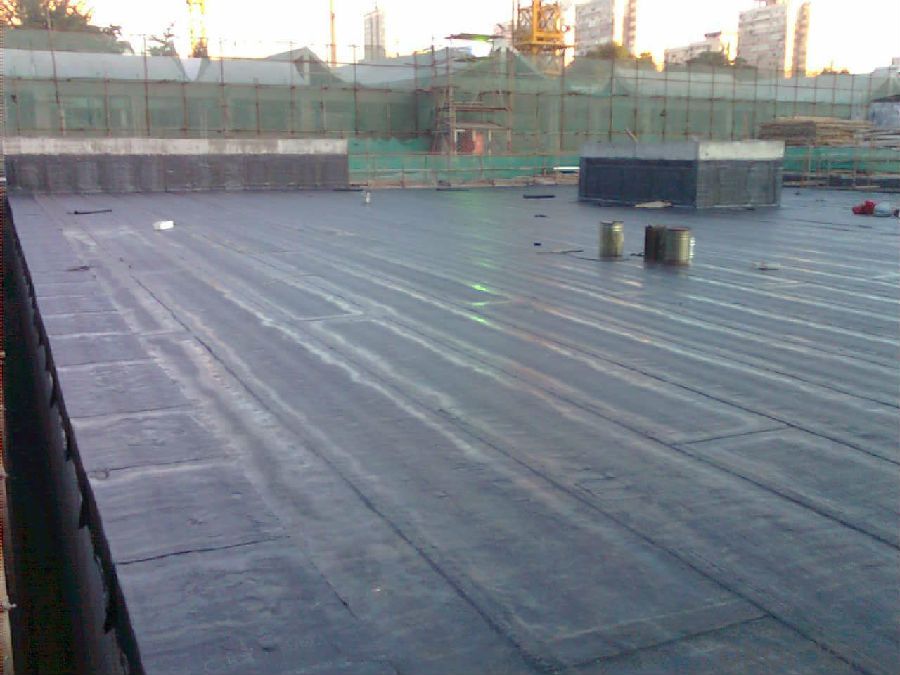
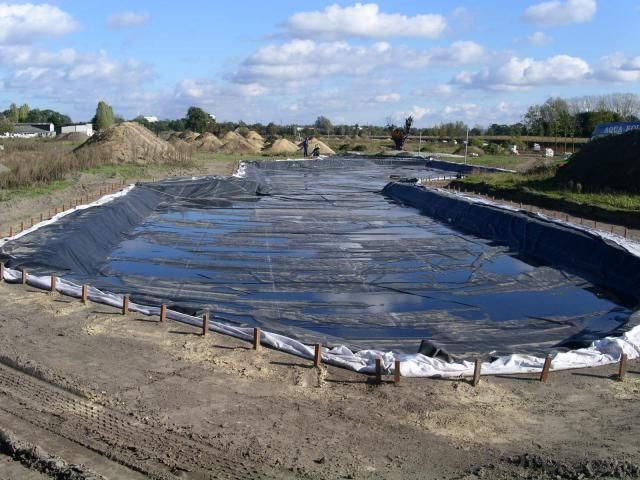
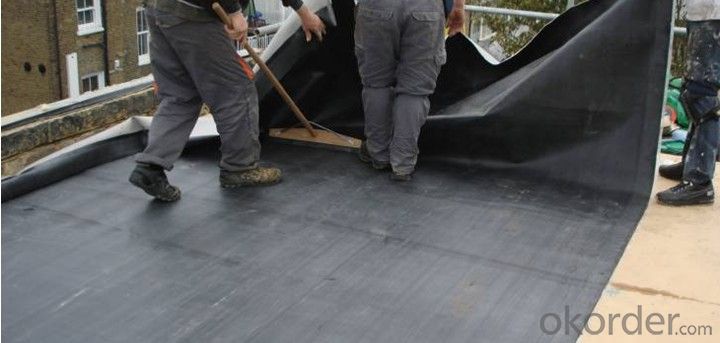
IMages of EPDM Coiled Rubber Waterproof Membrane with 1.2mm Thickness:
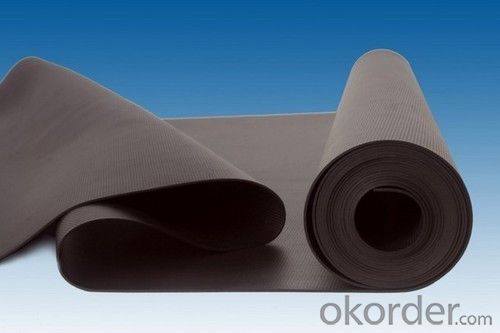
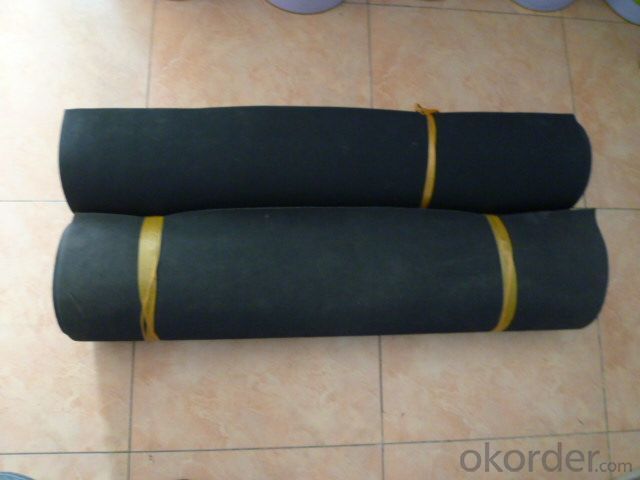
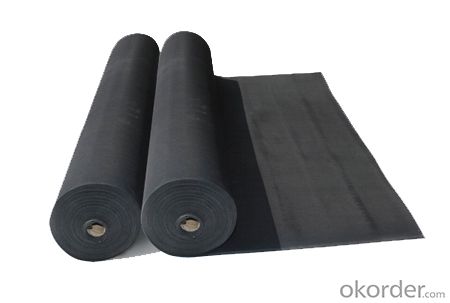
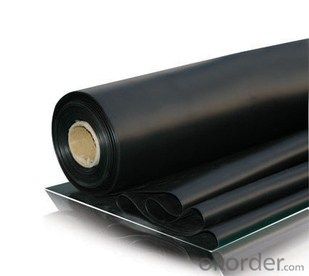
FAQ of EPDM Coiled Rubber Waterproof Membrane with 1.2mm Thickness:
1. What are we supplying?
We are specialized in producing Colorful Asphalt Roof Shingle, SBS/APP modified bitumen waterproof membrane, Self adhesive bitumen waterproof membrane, PVC waterproofing membrane, EPDM rubber roofing membrane, Single Component Polyurethane Waterproof Coating, and Spray Polyurea Waterproof Coating
.
2. How Many years experience do we have?
We have been exported to more than 20 countries in the past 15 years.
3. How long do we usually reply your request?
We always reply our customer within 24 hours.
- Q: Does a waterproofing membrane provide any insulating properties?
- No, a waterproofing membrane does not provide any insulating properties. Its primary function is to prevent water penetration and protect the underlying structure from moisture damage.
- Q: Can waterproofing membranes be used on utility manholes?
- Yes, waterproofing membranes can be used on utility manholes. Waterproofing membranes are specifically designed to provide a barrier against water infiltration, making them suitable for use in areas where water is present, such as manholes. These membranes are typically applied to the walls and floors of the manhole to prevent water from seeping through and causing damage to the structure or the utilities within. By effectively sealing off the manhole, waterproofing membranes help to maintain the integrity and functionality of the utilities and prevent water-related issues such as corrosion, leaks, and the degradation of materials. Additionally, waterproofing membranes can also provide protection against other elements such as chemicals, gases, and soil contaminants that may be present in or around the manhole. Therefore, using waterproofing membranes on utility manholes is a common practice to ensure their long-term durability and functionality.
- Q: Is a waterproofing membrane resistant to impact or abrasion damage?
- No, a waterproofing membrane is not typically resistant to impact or abrasion damage.
- Q: BS waterproofing membrane is modified? There are not a few thick drawings, how to do
- SBS waterproofing membrane is elastomer modified asphalt waterproofing membrane. Performance indicators Implementation of GB 18242-2008.
- Q: Can a waterproofing membrane be used on flat roofs?
- Yes, a waterproofing membrane can be used on flat roofs. In fact, it is a common and effective method used to protect flat roofs from water damage and leakage. The waterproofing membrane is designed to provide a durable and watertight barrier, ensuring the roof remains protected from rain, snow, and other elements.
- Q: Can a waterproofing membrane be used in industrial facilities or warehouses?
- Yes, a waterproofing membrane can be used in industrial facilities or warehouses. Industrial facilities and warehouses often have concrete floors or walls that are susceptible to water damage from leaks or moisture. By applying a waterproofing membrane, these areas can be protected against water penetration, preventing potential damage to the structure and its contents. Waterproofing membranes are designed to create a barrier that prevents water from seeping through the surface, providing an effective solution for industrial facilities and warehouses where moisture control is essential. Additionally, these membranes are durable and can withstand heavy foot traffic and equipment, making them suitable for use in high-traffic areas. Overall, using a waterproofing membrane in industrial facilities or warehouses can help maintain a dry and safe environment, safeguarding the structure and its contents.
- Q: Can waterproofing membranes be used on concrete floors?
- Yes, waterproofing membranes can be used on concrete floors. They are commonly used to protect concrete surfaces from water damage and can be applied to both new and existing concrete floors to prevent water penetration and moisture-related issues such as mold, mildew, and deterioration.
- Q: Can a waterproofing membrane be used for a tunnel waterproofing system?
- A tunnel waterproofing system can utilize a waterproofing membrane. This material, which is both flexible and durable, is specifically designed to prevent water from entering a structure. It is commonly employed in various construction projects, including tunnels, to create a strong defense against water infiltration. In the case of a tunnel waterproofing system, the membrane is typically applied to the outer walls and floor of the tunnel. Multiple layers are installed to guarantee a tight seal and long-lasting protection against water penetration. By acting as a barrier, the membrane effectively prevents water from seeping through the tunnel's concrete or other materials. Different types of waterproofing membranes are available, such as bituminous, PVC, and liquid-applied membranes. The appropriate choice depends on factors such as the type of tunnel construction, water pressure levels, and project-specific requirements. To ensure the membrane's effectiveness, it is crucial to carefully select and install it. Proper surface preparation, including substrate cleaning and smoothing, is essential for achieving a strong bond between the membrane and the tunnel surface. Additionally, great attention should be paid to correctly sealing any joints, penetrations, or connections in the membrane to prevent water from entering. Overall, a waterproofing membrane is a dependable and widely utilized solution for tunnel waterproofing systems. When appropriately chosen and installed, it provides an effective defense against water ingress, guaranteeing the tunnel structure's durability and longevity.
- Q: Can a waterproofing membrane be used for a shower enclosure?
- Yes, a waterproofing membrane can be used for a shower enclosure. These membranes are specifically designed to prevent water from seeping through the walls and floor, ensuring a watertight seal. They are commonly used in construction and renovation projects to protect areas prone to moisture, such as bathrooms and showers.
- Q: Does a waterproofing membrane require any specific preparation of the substrate before installation?
- Preparation of the substrate is essential for the installation of a waterproofing membrane. Before applying the membrane, the surface on which it will be placed must be thoroughly cleaned, dried, and devoid of any contaminants or debris that could impede its adhesion. This process typically entails the removal of loose materials, such as old paint or sealants, and the leveling of any uneven surfaces. Furthermore, it may be necessary to repair any cracks or damage in the substrate to guarantee a proper and efficient installation of the waterproofing membrane. By following the recommended preparatory procedures, one can ensure that the membrane performs optimally and exhibits remarkable durability, effectively safeguarding the underlying structure against water infiltration.
Send your message to us
EPDM Coiled Rubber Waterproof Membrane with 1.2mm Thickness
- Loading Port:
- Shanghai
- Payment Terms:
- TT OR LC
- Min Order Qty:
- 20000 m²
- Supply Capability:
- 5000000 m²/month
OKorder Service Pledge
OKorder Financial Service
Similar products
Hot products
Hot Searches
Related keywords
